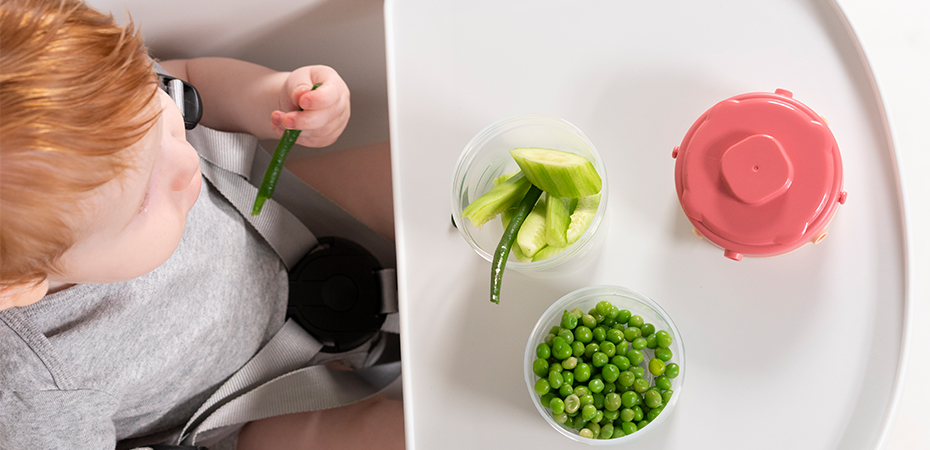
Here’s the gag (literally.) When starting solids, your baby’s reaction to food may be a little scary at times. Today, we’re here to ease your mind and fill you in on what you need to know about your baby’s gag reflex.
What does it mean to gag?
By definition, the gag reflex is a contraction of the back of the throat that occurs when an object touches the roof of your mouth, back of your tongue/throat or the area around your tonsils. It’s a natural reflex that helps prevent choking and eases the transition from liquid to solid foods during a baby’s first year. Gagging occurs often the first few months of a baby’s journey to solids due to the brain registering all foods to be too chunky for their stomach to digest. This reflex slowly fades as they gain sensory experience and develop oral motor skills.
Is gagging the same as choking?
Though gagging and choking may seem closely related, they’re actually different. While gagging expels things the brain registers as harmful, choking occurs when those things get stuck in your windpipe. When baby is gagging you will hear loud sounds and coughing. They may stick their tongue out, or even vomit. If a child is choking, however, they will be unable to cry, cough, or gasp. There could be high-pitched sounds and visible strain on their face. If you notice any of these signs, follow first aid for choking and call 911 immediately.
To puree or not puree?
Many parents start solids around 4 to six months with thin purees or baby cereal. On the other hand, baby-led weaning (BLW), also known as baby self-feeding, is a philosophy that’s rising in popularity. Upon starting solids, this technique skips the mushed pureed phase and encourages eating whole foods from the get go.
While some people may think that BLW might make a baby more likely to choke, a study by the American Academy of Pediatrics found that it carries the same choking risk as the puree method. Whether you’re doing baby-led weaning or purees, gagging can be expected with both. It’s naturally occurring, however, too much gagging can be an issue.
When is gagging problematic?
A growing baby will gag a lot, however, if your baby is gagging a lot for unclear reasons then it could be problematic. When a baby is constantly gagging and appears to have discomfort, it could be due to an underlying condition such as Gastroesophageal Reflux Syndrome. Keep an eye on your little one and if you notice patterns of constant gagging it’s time to take a trip to the pediatrician!
